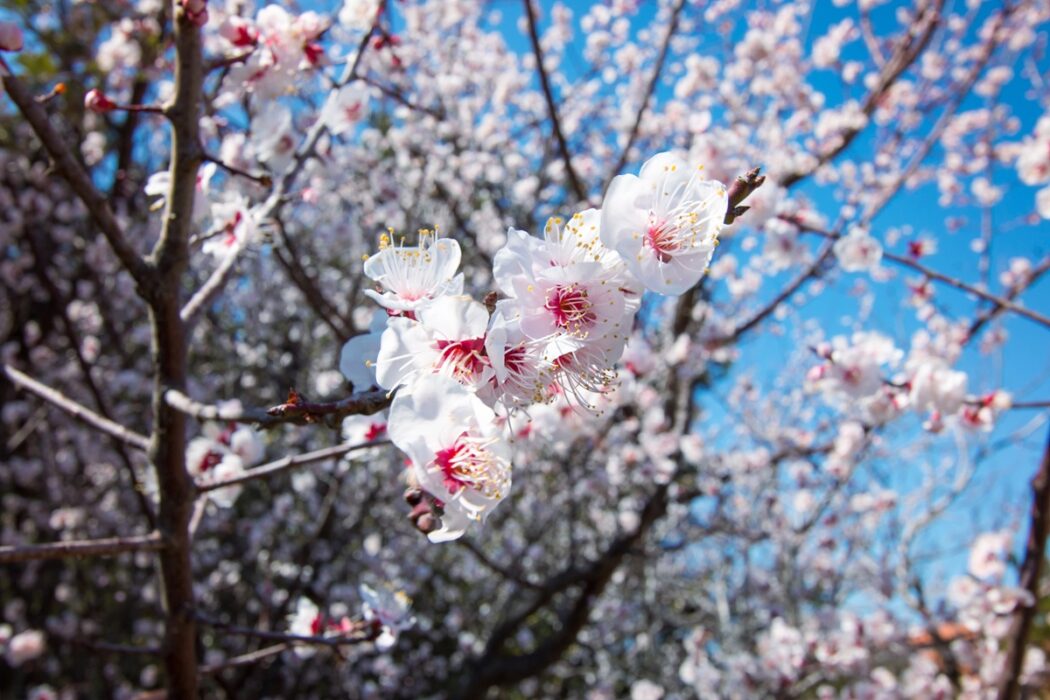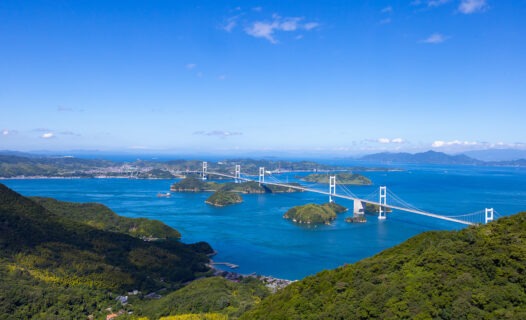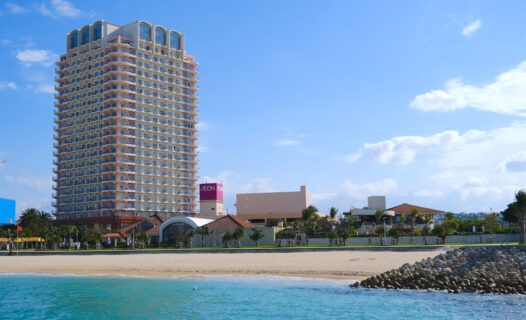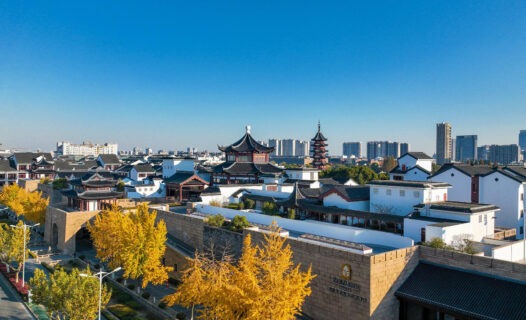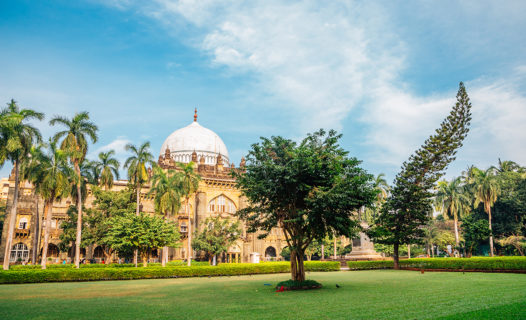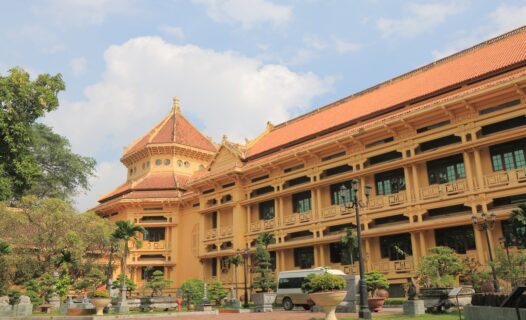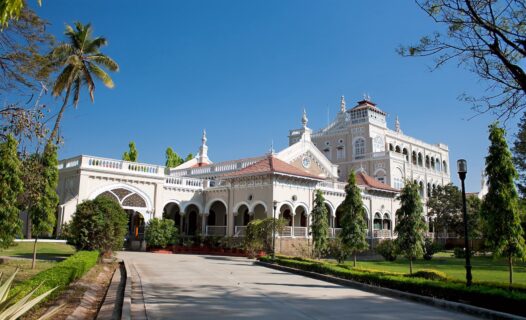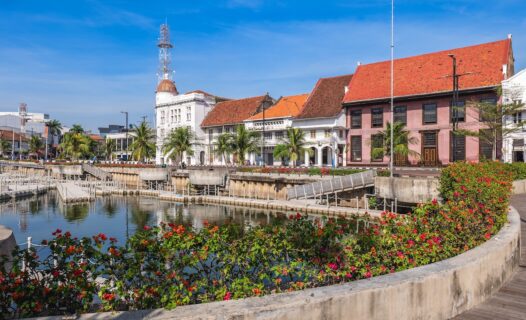10 Reasons Why Jeju Island is the Ultimate Spring Escape: Festivals, Flavors, and Fun!
When spring arrives, Jeju Island transforms into a breathtaking paradise, bursting with color, life, and delightful experiences. This stunning volcanic island, located off the southern coast of South Korea, is not just a feast for the eyes but also a treasure trove of cultural gems and culinary delights. From vibrant festivals that celebrate the season to mouthwatering local cuisine, Jeju Island offers an unforgettable escape for travelers seeking a spring adventure.
As the cherry blossoms bloom and the canola fields turn golden, Jeju becomes a canvas of nature’s artistry. Whether you’re an adventure seeker, a foodie, or a culture enthusiast, this enchanting island has something special in store for you. So, pack your bags and prepare for a delightful journey through Jeju Island’s spring splendor!
Spring Splendor: Why Jeju Island is Famous
Jeju Island is famous worldwide for its unique landscapes and rich cultural heritage. With its dramatic volcanic formations, lush greenery, and pristine beaches, it’s no wonder that Jeju has earned a spot on many travelers’ bucket lists. Designated as a UNESCO World Heritage Site, the island boasts breathtaking natural wonders like Hallasan Mountain and the stunning Geomunoreum Lava Tube System.
But it’s not just the scenery that draws visitors in; Jeju’s cultural heritage is equally captivating. From traditional folk villages to ancient temples, the island is steeped in history and local traditions. The warm hospitality of the Jeju people adds to the charm, making every visit feel like a homecoming.
For those planning a trip, our Jeju Island travel guide is a perfect starting point to uncover all the wonders this island has to offer!
A Festival for Every Taste: Jeju Island’s Spring Celebrations
Spring in Jeju is synonymous with festivals, and there’s no shortage of celebrations that highlight the island’s vibrant culture and natural beauty. Here are a few must-attend festivals that will make your visit unforgettable:
Jeju Canola Flower Festival
Taking place in early April, the Jeju Canola Flower Festival is a breathtaking spectacle where vast fields of yellow canola flowers bloom, creating a stunning backdrop for visitors. This festival features various activities including flower viewing, traditional performances, and local food stalls. Travelers rave about the picturesque scenery, making it a prime spot for photography enthusiasts!
Jeju Fire Festival
Another highlight of the spring season is the Jeju Fire Festival, usually held in March. This unique event celebrates the island’s agricultural heritage with a spectacular display of fire and fireworks. Locals set fire to the fields, a tradition believed to promote a good harvest. The festival is filled with exciting activities, including traditional games, performances, and, of course, delicious food!
Cherry Blossom Festival
As the cherry blossoms bloom, the Cherry Blossom Festival lights up Jeju Island, typically in early April. Strolling through parks adorned with pink blossoms is a magical experience. This festival features cultural performances, art exhibitions, and food stalls, allowing visitors to immerse themselves in the beauty of springtime.
Each festival offers a unique taste of Jeju’s culture and flavors, making them a must-see for any traveler. Don’t miss the chance to indulge in local delicacies while enjoying the festivities! For more exciting activities, check out our Top 10 Things to Do in Jeju Island.
Savoring Jeju: A Culinary Adventure
No visit to Jeju would be complete without indulging in its mouthwatering local cuisine. The island is renowned for its fresh seafood, hearty meals, and unique flavors that reflect its rich agricultural heritage. Here are some culinary delights you simply must try:
Black Pork BBQ
Jeju’s famous Black Pork BBQ is a culinary experience like no other. Raised on the island, this pork is known for its rich flavor and tenderness. Many restaurants grill the pork right at your table, creating a fun and interactive dining experience. Pair it with a local dipping sauce and a side of fresh vegetables for a meal you’ll never forget!
Fresh Seafood from Local Markets
With its proximity to the ocean, Jeju offers some of the freshest seafood you’ll ever taste. Visit local markets to sample everything from grilled fish to sashimi. Don’t miss the chance to try abalone, a local delicacy, often served raw or grilled to perfection.
Traditional Jeju Snacks and Desserts
For those with a sweet tooth, Jeju’s traditional snacks and desserts are a must-try. Sample "Hallabong," a sweet tangerine that bursts with flavor, or "Jeju green tea," which is often used in various desserts and drinks. Local markets are filled with these treats, perfect for a quick snack as you explore the island!
Jeju’s food scene is not just about eating; it’s about experiencing the island’s culture through its flavors. For more insights into Jeju’s culinary offerings, check out our Essential Guide to Discovering Jeju Island.
Nature’s Playground: Outdoor Adventures in Jeju
Springtime on Jeju Island isn’t just about the festivals and food; it’s also a fantastic opportunity to explore the great outdoors! With its stunning landscapes, lush greenery, and inviting beaches, Jeju is a paradise for nature lovers and adventure seekers alike. Here are some thrilling outdoor activities you can enjoy during your spring escape:
Hiking Hallasan Mountain
As the tallest mountain in South Korea, Hallasan offers breathtaking views and a rewarding hiking experience. The trails are adorned with vibrant spring flowers, making your ascent even more enjoyable. The Seongpanak Trail and Gwaneumsa Trail are popular routes that cater to different skill levels. Just remember to pack your camera—those panoramic views at the summit are Instagram gold!
Beach Bliss: Hyeopjae and Jungmun
After a vigorous hike, unwind at one of Jeju’s stunning beaches. Hyeopjae Beach, famous for its white sands and clear blue waters, is perfect for a relaxing afternoon. You can soak up the sun or enjoy a leisurely stroll along the shore. If you’re looking for a bit more action, head to Jungmun Beach, where you can try your hand at water sports like jet skiing or paddleboarding. Both beaches are ideal spots to witness the beautiful spring sunsets!
For those who love cycling, Jeju also boasts scenic bike paths that take you through picturesque countryside and coastal views. Rent a bike and explore the island at your own pace—just don’t forget your sunscreen!
Cultural Experiences: Discover Jeju’s Heritage
Jeju Island is not just about its natural beauty; it’s also rich in history and culture. Immerse yourself in the island’s unique heritage by visiting some of its fascinating cultural sites:
Jeju Folk Village
Step back in time at the Jeju Folk Village, where you can explore traditional thatched-roof houses and learn about the island’s customs. The village often hosts cultural performances, giving visitors a taste of Jeju’s vibrant traditions. It’s a fantastic way to appreciate the island’s history while enjoying the beautiful spring weather!
Osulloc Tea Museum
If you’re a tea lover, don’t miss the Osulloc Tea Museum. Nestled among the lush green tea fields, this museum offers insights into Korea’s tea culture. You can sample different types of tea, including Jeju’s famous green tea, and even indulge in delightful desserts made with tea. The surrounding gardens are perfect for a leisurely stroll, especially when everything is in full bloom!
These cultural experiences allow you to connect with Jeju’s rich heritage while enjoying the beautiful spring scenery. Be sure to take some time to appreciate the local traditions and perhaps even participate in a workshop or two!
Spring Weather Wonders: What to Expect
Spring in Jeju is a delightful mix of mild temperatures and blooming flora. Typically, you can expect temperatures ranging from 10°C to 20°C, making it ideal for outdoor activities. Pack layers, as mornings can be crisp while afternoons warm up nicely. A light jacket or sweater will do the trick!
April is particularly famous for its cherry blossoms, so if you visit during this time, you’ll be treated to a stunning display of pink blooms. The best time to visit Jeju Island is from late March to mid-April, when the weather is pleasant, and the island is bursting with life.
Hidden Gems: Unique Attractions Off the Beaten Path
While Jeju is famous for its popular attractions, there are plenty of hidden gems waiting to be discovered. Here are a couple of unique spots that will add a special touch to your spring adventure:
Seongsan Ilchulbong (Sunrise Peak)
Known as Sunrise Peak, Seongsan Ilchulbong is a UNESCO World Heritage Site that offers breathtaking views, especially at dawn. The hike to the top is relatively easy and takes about 30 minutes. Once you reach the summit, you’ll be rewarded with stunning vistas of the ocean and surrounding landscape. It’s a perfect spot for photography, so make sure your camera is ready!
Jeju Stone Park
For a unique cultural experience, visit Jeju Stone Park, which showcases the island’s volcanic rock formations and their significance in local folklore. The park features various sculptures and art installations that reflect Jeju’s cultural heritage. It’s a tranquil place to explore and enjoy the beauty of nature without the crowds.
These hidden gems allow you to experience a different side of Jeju Island, away from the typical tourist spots. Don’t hesitate to venture off the beaten path—you never know what treasures you might find!
A Day-by-Day Spring Itinerary for Jeju Island
Ready to make the most of your Jeju adventure? Here’s a suggested itinerary that combines festivals, cultural experiences, and outdoor activities:
Day 1: Arrival and Jeju Folk Village
Start your trip by settling into your accommodation and then head to the Jeju Folk Village to immerse yourself in the island’s culture. Enjoy a traditional meal at a local restaurant and take part in any cultural performances happening that day.
Day 2: Canola Flower Festival and Beach Day
Spend your second day at the Jeju Canola Flower Festival, where you can revel in the sea of yellow blooms. Afterward, relax at Hyeopjae Beach, soaking up the sun and enjoying some fresh seafood at a beachside eatery.
Day 3: Hiking Hallasan and Local Cuisine Tour
On your final day, tackle the trails of Hallasan Mountain for stunning views. After your hike, treat yourself to a culinary tour, sampling local delicacies like Black Pork BBQ and fresh seafood. Don’t forget to try some traditional Jeju snacks for dessert!
This itinerary provides a balanced mix of cultural experiences, outdoor adventures, and delicious food, ensuring you experience the best of what Jeju Island has to offer in spring.
Fun Facts About Jeju Island: What Makes It Special
As you explore Jeju, you’ll discover some fascinating facts about the island that make it truly unique:
- Jeju is home to over 360 volcanic cones, making it a geological wonder.
- The island boasts a unique dialect that can be quite different from mainland Korean.
- Jeju’s Hallabong tangerines are famous for their sweet flavor and are a must-try when visiting.
- The island has its own traditional female divers, known as Haenyeo, who harvest seafood without oxygen tanks.
These fun facts not only add to your travel knowledge but also enhance your appreciation for Jeju Island’s rich culture and natural wonders!
Practical Travel Information: Tips for a Smooth Journey
To make your Jeju experience as enjoyable as possible, here are some essential travel tips:
- Transportation: Renting a car is one of the best ways to explore the island, providing you with the freedom to visit hidden spots. Public buses are also available but may require more planning.
- Accommodation: Jeju offers a range of accommodations, from luxury resorts to cozy guesthouses. Booking in advance during the spring peak season is recommended.
- Safety: Jeju is generally safe for travelers, but always keep an eye on your belongings, especially in crowded areas.
For more detailed travel recommendations, check out our Complete Guide to Jeju Island’s Best Places.
Shopping Guide: Souvenirs and Local Markets
What’s a trip without some shopping? Jeju Island is bursting with local markets and unique souvenirs that will remind you of your adventure:
Dongmun Traditional Market
Located in Jeju City, Dongmun Traditional Market is a bustling hub where you can find everything from fresh produce to handmade crafts. Don’t forget to sample some street food while you’re there—Jeju’s local snacks are a must-try!
Jeju’s Famous Orange Products
Jeju is renowned for its sweet oranges, so be sure to pick up some orange-flavored treats or even fresh oranges to take home. They make for delicious souvenirs that your friends and family will love!
Shopping in Jeju is not just about buying souvenirs; it’s also about experiencing the local culture. So take your time, explore, and enjoy the vibrant atmosphere of the markets!
Transportation Tips: Getting Around Jeju Island
Getting around Jeju Island is relatively easy, thanks to its well-developed transportation system. Here are some options to consider:
- Car Rentals: Renting a car is highly recommended for the best flexibility. There are several rental agencies at the airport and around the island.
- Buses: Public buses connect major attractions, but schedules can be less frequent, so plan accordingly.
- Taxis: Taxis are readily available, and they can be a convenient option for short trips, especially if you’re traveling in a group.
Understanding your transportation options will help you make the most of your time on this beautiful island!
Safety and Health Guidelines: Travel Smart in Jeju
Jeju Island is known for its safety, but it’s always wise to keep a few health and safety tips in mind:
- Stay Hydrated: With all the outdoor activities, make sure to drink plenty of water, especially during hikes.
- Sun Protection: Apply sunscreen regularly, as the sun can be quite strong, particularly in spring.
- Emergency Contacts: Familiarize yourself with local emergency numbers and the location of nearby hospitals or clinics.
By keeping these guidelines in mind, you can fully enjoy your adventures in Jeju Island!
Commonly Asked Questions (FAQs) About Jeju Island
Here are answers to some frequently asked questions that can help enhance your travel experience:
What is the best time to visit Jeju Island?
The best time to visit Jeju Island is during spring (late March to mid-April) when the weather is pleasant, and the flowers are in bloom.
What are the must-try foods in Jeju?
Be sure to try Black Pork BBQ, fresh seafood, and Hallabong tangerines during your visit!
Are there any unique cultural experiences in Jeju?
Yes! Visiting the Jeju Folk Village and Osulloc Tea Museum are great ways to experience the island’s culture.
These FAQs can help you plan your trip better and make the most of your Jeju Island adventure!
As you can see, Jeju Island is a treasure trove of experiences waiting to be explored. From vibrant festivals to stunning natural landscapes and delicious food, this island truly has it all. So why wait? Start planning your spring escape to Jeju Island today!

